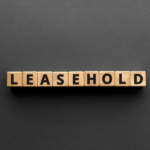
Leasehold
July 29, 2024Freehold: A Comprehensive Guide to Absolute Property Ownership
Introduction
Freehold represents one of the most comprehensive forms of property ownership available. Unlike leasehold, which provides usage rights for a specific period, freehold offers complete ownership of both the property and the land it sits on, with no time limitations. This article delves into the concept of freehold, its benefits, potential drawbacks, and the process of acquiring freehold property.
What is Freehold?
Freehold is a type of property tenure where the owner holds complete and permanent ownership of both the land and any buildings on it. This means the owner has full rights over the property without any time constraints. Unlike leasehold, there is no expiration date on the ownership, and the owner is not required to pay ground rent to a landlord.
Benefits of Freehold
Freehold ownership comes with several advantages:
1. Complete Ownership
With freehold, the owner has absolute control over the property and the land it is built on. This includes the freedom to make modifications, extensions, or renovations without needing permission from a landlord.
2. No Time Limitations
Freehold ownership does not have an expiration date. This provides long-term security and stability, making it an attractive option for individuals and businesses planning to hold property indefinitely.
3. No Ground Rent
Freehold owners are not required to pay ground rent or other fees to a landlord. This eliminates additional costs that are commonly associated with leasehold properties.
4. Increased Property Value
Freehold properties often have higher market value compared to leasehold properties due to the complete ownership and lack of lease-related restrictions. This can lead to better investment returns in the long term.
Potential Drawbacks of Freehold
While freehold offers many benefits, there are some potential drawbacks to consider:
1. Higher Initial Cost
The upfront cost of purchasing freehold property can be higher compared to leasehold. This is due to the complete ownership of both the land and the building.
2. Maintenance Responsibilities
Freehold owners are fully responsible for all aspects of property maintenance, including the land, building structure, and any associated facilities. This can involve significant time and financial investment.
3. Limited Legal Protections
In some jurisdictions, freehold ownership may offer fewer legal protections compared to leasehold, especially if disputes arise regarding property boundaries or land use.
The Process of Acquiring Freehold Property
Acquiring freehold property involves several key steps:
1. Property Search and Selection
Start by searching for properties available for freehold purchase. Work with a real estate agent or property broker to find suitable options that meet your criteria.
2. Due Diligence
Conduct thorough due diligence on the property, including checking the title deeds, land registry records, and any existing covenants or restrictions. This helps ensure there are no legal issues associated with the property.
3. Make an Offer
Once you have selected a property, make an offer to purchase. The offer should be based on the market value of the property and any findings from your due diligence.
4. Legal and Financial Arrangements
Engage a solicitor or legal advisor to handle the legal aspects of the purchase. This includes drafting and reviewing the purchase contract, conducting title searches, and ensuring all legal requirements are met. Arrange financing through a mortgage lender if necessary.
5. Completion of Purchase
Once all legal and financial arrangements are in place, complete the purchase by signing the final contract and transferring funds. The ownership of the property is then officially transferred to you.
6. Property Registration
After completing the purchase, register the property with the relevant land registry or property authority. This ensures that your ownership is officially recorded and protected.
Tips for Freehold Property Owners
1. Understand Property Laws
Familiarize yourself with property laws and regulations in your area to ensure you are fully aware of your rights and responsibilities as a freehold owner.
2. Maintain the Property
Regularly maintain and inspect your property to prevent issues and ensure it remains in good condition. This includes both the building and the surrounding land.
3. Keep Accurate Records
Keep accurate records of all property-related documents, including title deeds, maintenance records, and correspondence related to the property.
4. Plan for Future Needs
Consider future needs and potential changes in your property, such as renovations or expansions. Plan accordingly to ensure that you can accommodate any future requirements.
Conclusion
Freehold ownership offers a high level of control and permanence, making it a desirable option for those seeking long-term property investment. By understanding the benefits, potential drawbacks, and the process of acquiring freehold property, you can make informed decisions and enjoy the advantages of complete property ownership. Whether for residential or commercial purposes, freehold provides stability, freedom, and the opportunity for long-term investment.
FAQ
1. What is freehold property?
Freehold property is a type of property tenure where the owner has complete and permanent ownership of both the land and any buildings on it, with no time limitations.
2. What are the benefits of freehold ownership?
Benefits of freehold ownership include complete control over the property, no time limitations, no ground rent, and potentially increased property value.
3. What are the potential drawbacks of freehold ownership?
Potential drawbacks include higher initial costs, full responsibility for maintenance, and limited legal protections in some jurisdictions.
4. What is the process of acquiring freehold property?
The process includes property search and selection, due diligence, making an offer, arranging legal and financial aspects, completing the purchase, and registering the property.
5. What tips should freehold property owners consider?
Freehold property owners should understand property laws, maintain the property, keep accurate records, and plan for future needs.
Understanding freehold ownership can help you make informed decisions and enjoy the benefits of complete property control.

